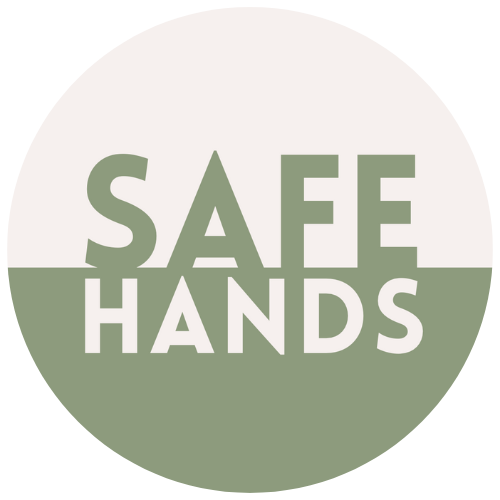My Baby Won't Take A Bottle! Help!
This blog post is an excerpt from the Safe Hands Newsletter, which covers one parenting and sleep dilemma each month. Click here to sign up!
Hi Claire,
I'm due to return to work in a month and am super stressed because my baby won't take a bottle. She fights it every time I try and it's really making me worry about leaving her.
Thanks heaps,
Anon
Hey Anon!
Ahh this absolutely has to be one of the biggest worries for mums who are returning to work (as if you need any more stress added to this very intense time!).
A baby’s interest (or ability) in taking a bottle is SO hit and miss from one child to another. I have no doubt that in this quest for your baby to take a bottle, you have heard it all “oh MY baby did that without any issue!”…is one that can hit quite hard.
Firstly, this is such a common experience for breastfed babies.
Why? All babies LOVE consistency and predictability.
For an activity that they have literally undertaken up to 10 times every day for their entire life, when the goalposts shift it’s no wonder there is pushback.
So what in the world can be done about this? Let’s have a look! (You are absolutely going to notice that there are a few contradictions here…this is because you cannot have a one-size-fits-all approach for all babies).
When possible, give expressed breastmilk (EBM) in the bottle before trying formula. Going back to the ‘consistency and predictability thing’, taste plays a huge role in your baby’s experience of feeding. Going from a direct breastfeed straight to trying formula in a bottle may just be too much change all at once. Using EBM in the bottle may make it easier for your baby to adjust.
Side note…if in the medium/long term, you want to give formula and not EBM:
Start with EBM and then once they’re comfortable, try making a bottle that is 3/4 EBM and 1/4 formula (make this separately according to instructions on the tin, then add it to your EBM in the bottle). Slowly increase the formula ratio and decrease the EBM ratio.
You may have more difficulty if it’s you who is giving the bottle. Why? They know they can have a feed directly from you. This is where the other partner or support people come in - they may have to be the ones who are offering the bottle.
Temperature is important. Again, consistency and predictability (are you sick of me yet?!) in the temperature of the EBM or formula mimicking your body temperature (approx 36 deg) can play a role. Don’t run to get a thermometer, just make sure that you aren’t giving EBM or formula that is cold or room temperature.
Patience, yet consistency is key. Aim to offer a bottle every day or two but don’t force it. If there is a struggle and your baby is arching their back away from you, stop and try again tomorrow. You may have to repeat this process for weeks before you start seeing a change in their behaviour.
Try and offer a small amount of EBM in a bottle when they have recently been fed. They are less likely to be hungry and fussy at this point, so may be more comfortable taking a bottle.
This is where I contradict myself with the whole “consistency and predictability” thing - I told you this would happen! Avoid holding your baby in a cradle/lateral hold (or your typical BF position) when giving them their bottle. Instead, try offering it to them sitting up against you (so their back is on the caregiver’s torso) or in a bouncer/rocker. A cradle position may lead them to expect a breastfeed, so they could fight it a bit more when they don’t get what they expect.
For those of you who have younger babies! Many lactation consultants recommend that you offer your baby a bottle at around the 4-6 week mark (and then offer occasionally every week or two moving forward) as introducing a bottle after 3 months of age can be very tricky.
This is going to be an experiment of throwing mud at a wall and seeing what sticks. Involve your co-parent (if you have one) and other supports - this shouldn’t be something that purely falls on your shoulders. Be patience and kind with yourself. I really hope these tips help.
All the best x
If you are looking for some more information regarding this topic, I highly recommend that you check out the following podcasts:
Bottle Feeding a Breastfed Baby with Susie Prout (Bloom with Body, Birth and Baby)
